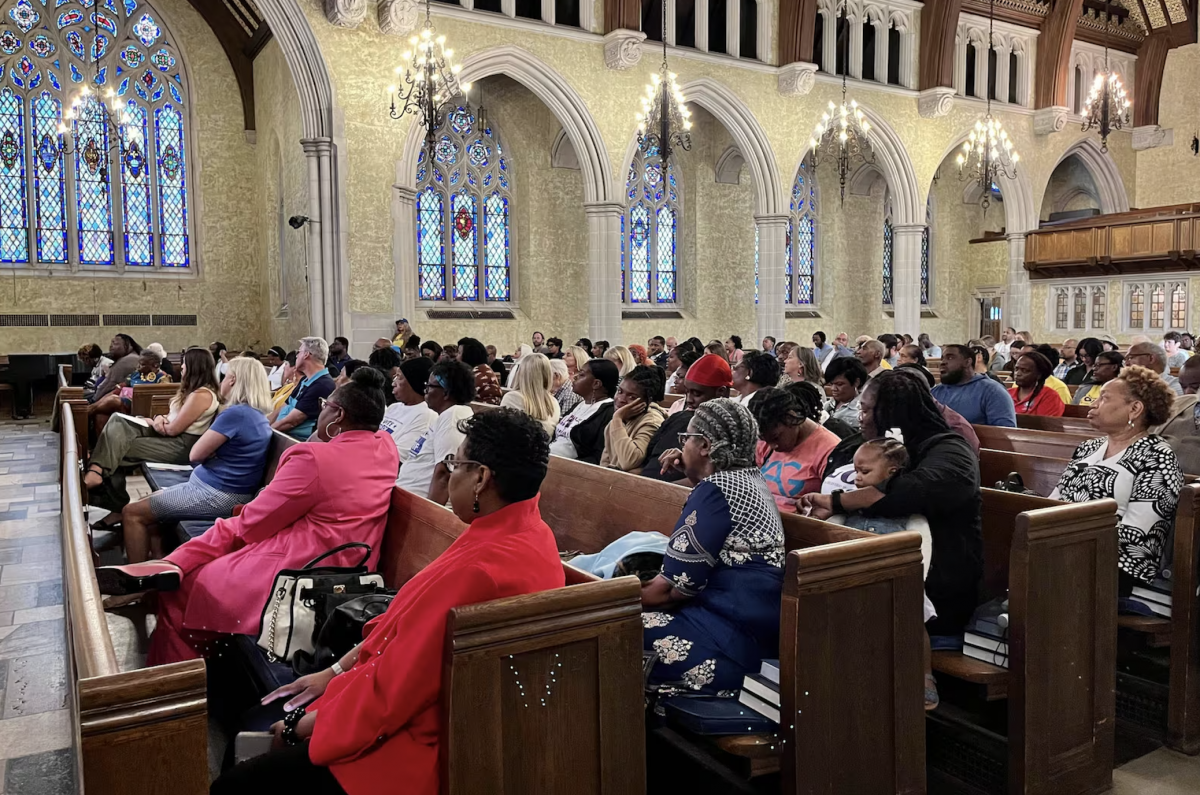Tennessee schools are increasingly punishing and excluding special education students with behavioral issues instead of providing them with evidence-based interventions to support their academic and behavioral growth, a new report says.
And it’s not the fault of teachers, school staff, or the students themselves, the author says.
In its report, released Friday, the Tennessee Disability Coalition blamed state policymakers for setting priorities and adopting policies that are ineffective at best, and likely harming thousands of the state’s most vulnerable students.
As a result, the coalition says, educators are using “ineffective, dangerous, counter-productive, and rights-violating practices” in the classroom.
The criticisms come after Tennessee enacted a string of increasingly stringent laws aimed at tightening discipline in the classroom — from the 2021 Teacher’s Discipline Act empowering teachers to remove chronically unruly students to a 2024 law requiring a one-year suspension for students who assault teachers at school.
Such policies, the report says, disproportionately affect students with disabilities, particularly those with behavioral issues, thereby restricting their educational opportunities.
“These policies not only sweep students with behavior needs into more restrictive settings, alternative school placements, and the juvenile justice system, they cast a net over other marginalized communities, including students of color and students in poverty,” the report says.
Jeff Strand, the coalition’s public policy director, said recent Tennessee laws also show a lack of understanding about special-needs students with behavioral challenges, leading to policies that are poorly suited to address the root causes of disciplinary issues.
“Good teachers know behavior issues are a child’s cry for help,” said Strand, a former special educator who authored the report. “What we’re doing in Tennessee is only making the problem worse.”
Specifically, the report calls out a shortage and high turnover of special education teachers; systemic gaps in training and support for special and general education teachers and administrators on the needs of students with behavior issues; a trend toward punitive and exclusionary practices; and a lack of student access to effective school-based supports and therapies, including enough school psychologists, counselors, speech-language pathologists, and board-certified behavior analysts.
Families: teachers are under-trained and overwhelmed
Chris and Angela Powell’s family has experienced gaps in school services firsthand as parents of a child with autism and ADHD.
They describe their son Charlie as intelligent, caring, and kind. But his behaviors — whether shouting out answers, failing to complete worksheets, or fighting — often resulted in lost recess, hours in the principal’s office, or even being physically restrained or placed in a padded room during his first few years of elementary school in Williamson County, south of Nashville.
“These are invisible disabilities, and his behavior was his form of communicating. But he was being excluded and punished based on his disability,” said Angela Powell, now a special-needs advocate. “His general education teachers didn’t seem to understand how to work with children who have needs like ADHD or autism.”
The Powells say Williamson County’s two school districts lacked qualified therapists and other specialized support staff, leaving teachers with few tools to tackle classroom misbehavior. Charlie eventually was placed on homebound instruction, receiving his lessons in a home setting and missing out on the opportunity to attend school with his non-disabled peers. Now 12, he is being homeschooled.
“If the richest district in Tennessee can’t help my son learn,” said Chris Powell, “I shudder to think what families deal with in the other 94 counties.”
Meanwhile, the report identified only three of the state’s 10 largest teacher training programs — at the University of Memphis, University of Tennessee-Knoxville, and University of Tennessee-Chattanooga — as offering more than two courses on teaching students with disabilities.
Also, while the state recently switched to a new K-12 education funding formula to provide more resources for students with higher needs, such as students with disabilities, the change did not require that districts designate such extra funds for special education services.
And while the state promised to inject an extra $1 billion annually in the K-12 funding pool, Tennessee remains in the bottom fifth of states in per-pupil funding.
Exclusion policies gave way to inclusion movement
Tennessee was once one of the many states that had laws formally excluding children with disabilities from public schools, on the premise that those kids would not benefit from a public school education. Before the passage of a 1975 federal law establishing the right to a public education for kids with disabilities, only 1 in 5 of those children were educated in public schools.
The expanded Individuals with Disabilities Education Act of 1990 marked the advent of the inclusion movement and the belief that children with disabilities, with some individualized support, can thrive in educational settings with their non-disabled peers.
But despite clear research on the benefits of inclusion for students with disabilities, surveys show general education teachers feel ill-prepared to work with them and struggle especially with special needs students with behavioral issues.
In Tennessee, about a tenth of the state’s public school students use an individualized education plan, or IEP, intended to ensure that the student receives specialized instruction and related services for their disability.
But according to data from the state education department, those same students receive a disproportionate share of formal disciplinary actions that include in-school and out-of-school suspension, expulsion, and transfer to alternative settings. In 2021-22, the most recent school year for which data are available, 12.5% of students with disabilities were removed from their classrooms, even though federal law limits excessive exclusionary discipline.
In addition, informal exclusionary disciplinary practices — which are difficult to quantify — are almost exclusively directed toward students with disabilities, the coalition says. They can include directing parents or guardians to take the student home for the day, inappropriate homebound placement, excessive use of threat assessments, inappropriate use of in-school suspension, and exclusion from school transportation.
Pending review of the report, a spokesperson for the state education department declined to comment on its assertions.
The leader of Professional Educators of Tennessee, which lobbied for the Teacher’s Discipline Act, acknowledged the challenges and nuances of disciplining students, especially those with special needs.
“We have seen since the pandemic an increase in mental health issues. That is why we at Professional Educators of Tennessee have worked hard to get additional funding for mental health in Tennessee,” said executive director JC Bowman.
He added that he’s open to new ideas that “ensure classrooms are safe and orderly, and every child has an opportunity to learn.”
The state comptroller is looking into the “informal removal” issue, also called “off-book suspensions.” Its Office of Research and Education Accountability has commissioned a report, which is expected to be released later this year, to better understand the use of informal removal, which often violates the rights of students with an IEP.
Strand says both pathways — formal and informal — can allow schools to avoid developing effective plans to correct bad behavior so they can stay in class and learn.
He recommends that Tennessee parents learn as much as they can about the rights of children with disabilities, including those with behavioral issues.
The coalition is hosting a free webinar at 5:30 p.m. Central time on Tuesday, June 25, on Facebook.
Marta Aldrich is a senior correspondent and covers the statehouse for Chalkbeat Tennessee. Contact her at maldrich@chalkbeat.org.
Chalkbeat is a nonprofit news site covering educational change in public schools.









